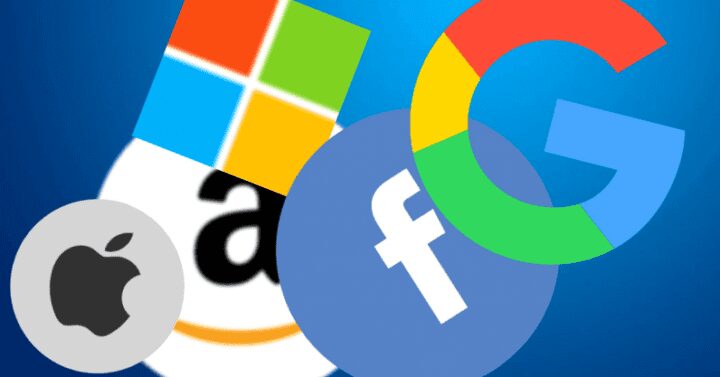
Lessons Learned Ahead of Yet Another Big Tech Hearing
Patrick Hedger
March 25, 2021
This post was co-authored by TPA Policy Analyst Dan Savickas.
Another panel of big tech CEOs are slated to be dragged yet again before a congressional committee to address congressional accusations about their business practices. Sundar Pichai, Mark Zuckerberg, and Jack Dorsey, the CEOs of Google, Facebook, and Twitter respectively will testify before the House Energy and Commerce Committee today. This is not even close to the first time each has been called to Capitol Hill in the last year. Before the fireworks commence again, it is worth considering what’s been learned from their many previous appearances.
The first lesson the American people should take from the parade of big tech show trials is that their lawmakers do not know what constitutes a monopoly. Politicians on both sides of the political aisle have bandied about the word “monopoly” at these hearings. However, none were able to demonstrate that any of these companies actually met that criteria. This is perhaps because, at each hearing, these tech CEOs were sitting next to their most fierce competitors.
The functional definition of “monopoly” at these hearings has boiled down to, “any large company.” However, it actually refers to having the exclusive possession of the production of a good or service. Twitter, Facebook, and Google – as well as Apple and Amazon – all compete vigorously for marketshare in multiple market segments from advertising to messaging services to video, etc.
While elected officials bristle and call names, the fact that there exist so many big tech CEOs to haul before Congress is evidence, in and of itself, of the vibrancy of the tech marketplace. This has perhaps not been any more evident than it has during the midst of the coronavirus pandemic. Tech companies have answered the call to ease the pain of the disease and the lockdowns that came with it. Amazon was vital in getting needed resources to all corners of the nation. Google provided vital information about symptoms, treatments, and now vaccination sites. Social media giants like Facebook and Twitter also served to keep the public informed – as well as connected – whilst locked down. Apple and Google provided the devices necessary to run all of these systems, along with Microsoft.
This illustrates another lesson the nation has learned – or should have learned – regarding the heightened scrutiny of big tech companies. Their success empowers not only them, but small businesses and families across the country. The pandemic has brought to light countless stories of small businesses who were able to stay afloat because of assistance from big tech companies. Whether it is being able to sell their products on Amazon, advertise on Google, or promote themselves on Facebook, Twitter, and Instagram, big tech has been vital to the recovery and preservation of many small businesses.
The effort to hurt big tech companies will have unintended consequences across the economy. While the giants that are being targeted can afford the fallout, the small businesses hanging on for dear life cannot. Congressional interference in the free market typically causes all sorts of collateral damage.
This is not only the case with antitrust. Another lesson of this era of congressional adventurism is that the law known as Section 230 is vital to online discourse on any topic, but especially politics. The coauthor of that provision, Sen. Ron Wyden (D-Ore.) asserts that it gives tech companies a “shield” to allow them to to provide an open forum for discussion, but also a “sword” so they can remove hazardous content without incurring penalties.
Unfortunately, lawmakers from both major political parties have called for the repeal of Section 230 in a suppose effort to combat misinformation and censorship. However, repealing Section 230 would do the opposite. Section 230 provides tech companies with immunity for content posted on their platform by third party authors. It’s a very simple principle: if you didn’t write it, you are (probably) not legally responsible for it.
By making tech companies responsible, they will be forced to curtail more content so as to avoid frivolous litigation. This will suppress a wide array of viewpoints and potentially suppress critical information. This is a far cry from fighting against misinformation and censorship. In fact, the bloodlust for big tech will empower both vices.
As the House Energy and Commerce Committee grills these CEOs in a hearing dedicated to misinformation, it is important that viewers have learned these lessons above and realize the source of misinformation that day will be those behind the dais. Members of America’s legislative body need to learn these lessons lest they derail some of the greatest success stories of our generation.
